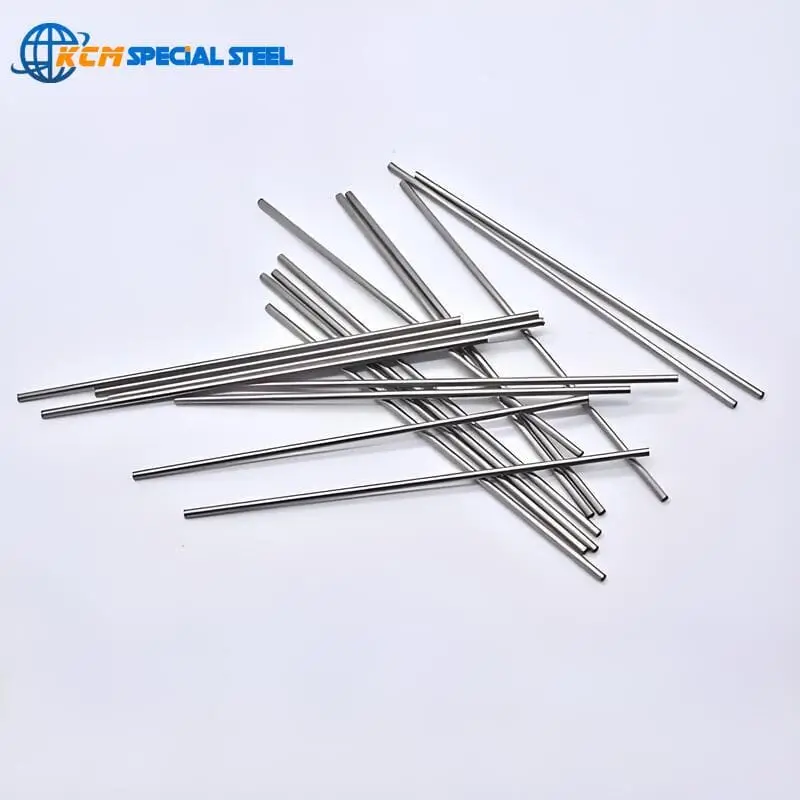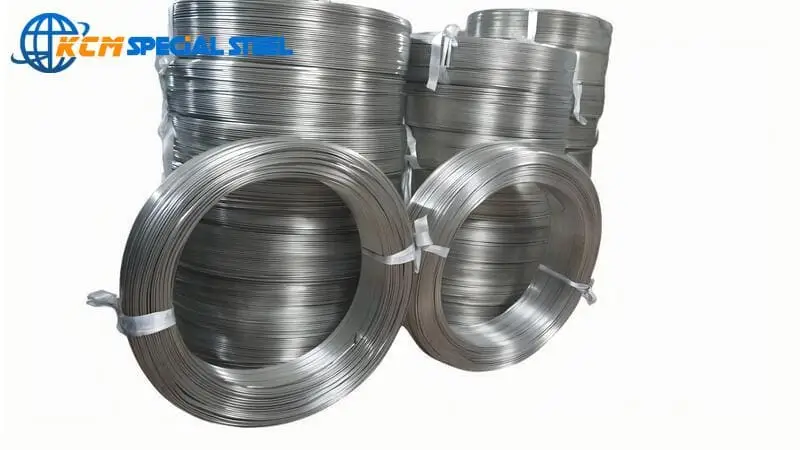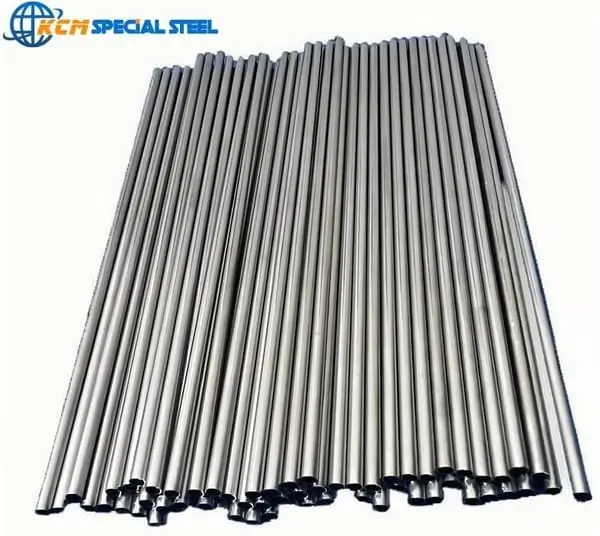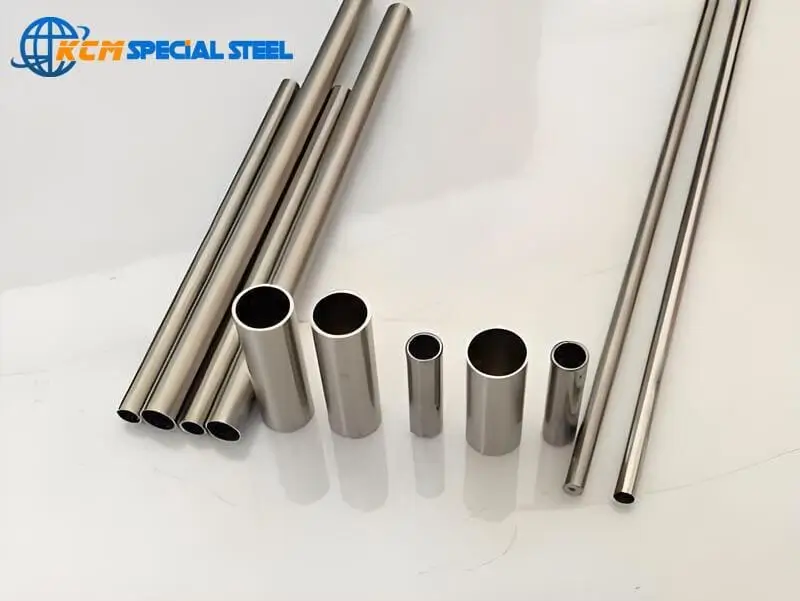Introduction to Stainless Steel Capillary Tube
stainless steel capillary tube is a precision tubular product with ultra-small diameter (typically <25mm) and thin wall thickness, manufactured according to ASTM A249/A269 or ISO 15510 standards. It exhibits high corrosion resistance (meeting 316L/304 grades) and dimensional accuracy (tolerance ±0.05mm), primarily used in medical devices, instrumentation, and micro-fluidic systems. The production involves cold-drawing or laser welding processes to achieve seamless/welded structures.
Stainless steel capillary tubes are hollow stainless steel pipes that become increasingly difficult to manufacture as the specifications vary. These precision tubes play a crucial role in various industrial applications due to their unique properties and manufacturing requirements.

Nickel Alloy Capillary Tubes, Duplex/Super Duplex, Stainless Steel Capillary Tube Main Material Grades:
- Austenitic Stainless Steel: 201, 202, 301, 304/304L, 316/316L/316Ti, 321, 347/347H,310/310S, 253MA, 254SMO/S31254 etc.
- Duplex & Super Duplex Stainless Steel: S31803 (2205, S32205), S32750 (2507), S32760
- High-Performance Nickel Alloys: MONEL® 400/500K, INCONEL® 600/601/625/718/X750 , INCOLOY® 800H/800HT/825 , Hastelloy® C276/C22, Nickel 200/201
- Nimonic®60/80A, Alloy 20/28/31,High Tempreture Alloy, Precipitation Hardening Stainless Steel, 904L etc.
Applications of Stainless Steel Capillary Tubes
The versatility of stainless steel capillary tubes stems from their ability to perform under extreme conditions while maintaining structural integrity. Their primary applications include:
Application Field | Specific Use Cases | Performance Requirements |
|---|---|---|
Instrumentation | Sensor housing, pressure transducer lines | Hermetic sealing, vibration resistance |
Electronics | Fiber optic cable reinforcement, PCB protection | EMI shielding, bend radius <5mm |
Medical Devices | Catheter components, microfluidics | Biocompatibility, sterilizability |
Automotive | Fuel injection systems, brake lines | High-temperature resistance, fatigue life |
Notably, 316 stainless steel capillary tubes are preferred in corrosive environments due to their molybdenum content enhancing pitting resistance.
Stainless Steel Coil Capillary Tube Photo

Key Characteristics of Stainless Steel Capillary Tubes
These specialized tubes exhibit several remarkable properties that make them indispensable in technical applications:
Flexibility: Can be bent freely to various angles and radii while maintaining consistent flexibility and durability in all directions
Corrosion Resistance: Exhibits excellent resistance to chemical corrosion
High-Temperature Performance: Withstands elevated temperatures without degradation
Abrasion Resistance: Maintains integrity under abrasive conditions
Tensile Strength: Can withstand axial forces up to 6 times their nominal diameter
Waterproofing: Provides effective moisture protection
EMI Shielding: Offers superior electromagnetic interference shielding properties
The 316 stainless steel capillary tube variant, in particular, has a density variation of only 1%-2%, making it exceptionally consistent in its physical properties.
Technical Specifications and Material Properties
1. Mechanical Performance Tensile Strength:
520-850 MPa (depending on grade)
Elongation: ≥35% (ensuring ductility)
Operating Temperature: -270°C to 800°C
2. Corrosion Resistance:
The 316 variant exhibits superior performance in:
Acidic environments (pH 1-12)
Chloride-rich media (e.g., seawater)
High-temperature oxidation
International Standards for Stainless Steel Capillary Tubes
ASTM A269/A269M
- Covers seamless and welded austenitic stainless steel tubing for general service, including capillary tubes (ID ≥1/4″ or 6.4mm, wall thickness ≥0.020″ or 0.51mm).
- Specifies requirements for materials (e.g., 304, 316L), mechanical properties, and heat treatment (solution annealing).
- Note: Excludes tubes with ID <1/8″ (3.2mm) or wall thickness <0.015″ (0.38mm) from mechanical testing.
ASTM A632
- Focuses on small-diameter (≤1/2″ or 12.7mm) seamless and welded austenitic stainless steel tubing, including capillary tubes for precision applications.
- Requires stringent dimensional tolerances and surface finish.
ASTM F138/F139
- For medical-grade 316LVM stainless steel capillary tubes (UNS S31673), used in surgical implants.
- Specifies vacuum-melted (VIM/VAR) processing, low sulfur (≤0.010%), and controlled carbon content for biocompatibility.
EN 10216-5
- European standard for seamless and welded stainless steel tubes, including capillary sizes (e.g., 1.4301/304, 1.4404/316L).
- Covers chemical composition, mechanical properties, and corrosion resistance.
- ISO 1127
- for stainless steel tubes—Dimensions and tolerances—provides general technical guidelines for capillary tubes.
Chinese Standards
GB/T 13296-2017
- For seamless stainless steel tubes (including capillary) in boilers and heat exchangers, with detailed technical requirements for dimensions and material grades (e.g., 06Cr19Ni10/304).
GB/T 14976-2012
- Specifies fluid-conveying seamless stainless steel capillary tubes, covering grades like 022Cr19Ni10 (304L) and S31008 (310S).
GB/T 20878-2007
- Defines stainless steel grades and chemical compositions, including capillary tube materials (e.g., 316L, 310S).
Other Standards
- EN 10216-5 (Europe): Specifies stainless steel capillary tubes for pressure applications, with a focus on corrosion resistance.
- JIS G 3448 (Japan): Standard for stainless steel capillary tubes used in precision instruments, featuring strict dimensional tolerances.
(Note: The numbers “3” and “2” in the original text appear to be reference markers and are omitted in the translation.)
Key Differences
- ASTM/EN standards emphasize high-temperature performance (e.g., TP304 in ASTM A249) and medical applications (ASTM F138).
- GB standards focus on fluid conveyance (GB/T 12771) and industrial corrosion resistance (GB/T 13296).
For precision capillary tubes (e.g., medical or instrumentation), ASTM A269 and F138 are preferred for engineers and purchasers’ strict tolerances and biocompatibility.
Manufacturing Process and Critical Control Points
The production of high-quality stainless steel capillary tubes requires strict adherence to several critical parameters:
1. Annealing Temperature Control
The annealing process, also known as solution heat treatment, must be performed within a precise temperature range of 1040-1120°C (according to Japanese standards). Proper annealing is indicated when the tubes appear incandescent in the annealing zone without showing signs of softening or sagging.
2. Annealing Atmosphere Composition
The annealing atmosphere should ideally consist of:
- Pure Hydrogen: Minimum purity of 99.99%
- Inert Gas Mixtures: Acceptable if hydrogen content is reduced, but must be free from excessive oxygen and water vapor
3. Furnace Seal Integrity
The bright annealing furnace must be completely sealed from ambient air. For hydrogen-based atmospheres, only one exhaust port should be open (for burning off excess hydrogen). Seal integrity can be checked using soap solution applied to all joints and seams, with special attention to the tube entry and exit points where seals are most prone to wear.
4. Protective Gas Pressure
To prevent micro-leaks, the furnace should maintain a positive pressure:
- Hydrogen Atmosphere: Minimum pressure of 20 kBar
5. Moisture Control in Furnace
Two critical moisture control measures must be implemented:
- Furnace Drying: All furnace materials must be thoroughly dried before first use
- Tube Inspection: Tubes must be free from excessive moisture, especially if they contain holes that could allow water ingress
Technical Specifications Table
| Parameter | Specification | Importance |
|---|---|---|
| Annealing Temperature | 1040-1120°C | Ensures proper material structure |
| Hydrogen Purity | ≥99.99% | Prevents oxidation |
| Furnace Pressure (H₂) | ≥20 kBar | Prevents air infiltration |
| Density Variation (316 SS) | 1%-2% | Ensures consistency |
| Axial Strength | 6× nominal diameter | Guarantees durability |
The manufacturing process of stainless steel capillary tubes, particularly the 316 stainless steel variant with its minimal density variation, represents a perfect blend of material science and precision engineering. These tubes’ ability to maintain performance under extreme conditions while providing reliable protection for sensitive components makes them indispensable in modern industrial applications.

Quality Assurance Measures
- Leak Testing: Helium mass spectrometry for micro-leak detection
- Dimensional Verification: Laser micrometer scanning (±0.01mm)
- Surface Inspection: 100% optical surface defect analysis
Emerging Trends and Future Developments
Recent advancements focus on:
- Nanostructured coatings for enhanced wear resistance
- Additive manufacturing of complex capillary networks
- Smart capillary tubes with embedded strain sensors
Conclusion
Stainless steel capillary tubes, particularly the 316 grade, serve as critical components in precision engineering applications. Their combination of mechanical strength, chemical resistance, and dimensional accuracy makes them irreplaceable in modern industrial systems. As manufacturing technologies evolve, these tubes will continue to enable innovations across multiple high-tech sectors.
KCMSS is Professional Supplier/Manufacturer of Nickel Alloy, Duplex & Super Duplex Stainless Steel, Stainless Steel Capillary Tubes in China.

